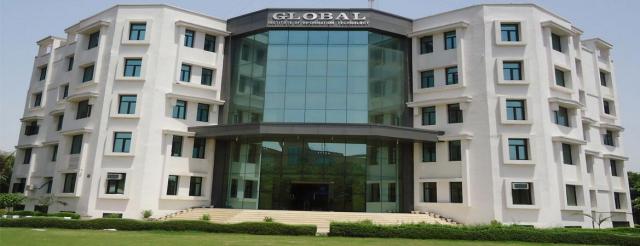Ghanshyamdas Saraf College of Arts and Commerce in Malad West, Mumbai, has built a reputation for its dedicated placement cell and consistent recruitment outcomes. The college's proactive approach to industry engagement and student training has resulted in meaningful career opportunities across diverse sectors. With a focus on both undergraduate and specialized programs, the institution navigates the competitive landscape of arts and commerce placements by aligning student development with employer expectations. Placement outcomes reflect a balance between aspirational compensation and practical industry demands. For the 2023 academic year, the college reported measurable progress in recruitment metrics:
GSCAC-Placement Overview
| Category | Value |
| Year | 2023 |
| Highest Package | ₹9 LPA |
| Average Package | ₹4.5 LPA |
| Median Package | ₹4.2 LPA |
| No. of Offers | 100 |
| No. of Students Placed | 95 |
| No. of Companies Visited | 35 |
| Top Recruiters | BFSI, IT Sector, MNCs |
GSCAC-Placement Performance Analysis
The distribution of salary packages indicates a concentration in mid-tier roles, with the median package at ₹4.2 LPA closely trailing the average of ₹4.5 LPA. This narrow gap suggests equitable distribution of opportunities rather than outlier highs skewing the data. With 95 students securing positions from 100 offers, the placement efficiency rate stands at 95%, reflecting effective candidate-company matching. Sectoral diversity emerges as a strength, with Banking, Financial Services and Insurance (BFSI) leading recruitment, followed by IT and multinational corporations. Roles typically include financial analysts, back-office executives, and client management positions. The college’s proximity to Mumbai’s corporate hubs enables consistent engagement with firms like ICICI Bank, Kotak Mahindra, and Deloitte, though specific recruiter names vary annually.
GSCAC-Institutional Support Mechanisms
Ghanshyamdas Saraf’s placement cell operates through a structured three-phase model:
- Pre-placement training: Workshops on resume building, aptitude tests, and sector-specific interviews
- Industry interface: Campus recruitment drives featuring 35+ companies annually
Post-offer support: Negotiation guidance and role transition assistance Student reviews highlight the cell’s accessibility, noting regular skill-assessment sessions and mock interviews. However, internship coordination receives mixed feedback, with some departments securing projects through faculty networks while others rely on student initiative.
GSCAC-Comparative Context in Indian Higher Education
Placement trends across Mumbai’s commerce colleges show parallels:
- Undergraduate programs typically report median packages between ₹2.5–4.5 LPA
- Specialized courses like BMS often achieve higher placement rates but narrower salary bands
- Industry exposure increasingly supplements academic performance in hiring decisions
The college mirrors national shifts toward skill-based recruitment, particularly in BFSI and IT, where communication abilities and analytical thinking outweigh pure academic scores.
GSCAC-Student Preparation Framework
Success in placements correlates strongly with:
- Academic consistency: Minimum 60% aggregate requirement for most recruiters
- Certification programs: GST practitioner courses, financial modeling certifications
- Extracurricular engagement: Finance clubs, case study competitions
Proactive students often secure internships through the college’s alumni network, which maintains ties with mid-tier financial firms and IT service providers.
GSCAC-Future Trajectory and Opportunities
While traditional roles dominate current placements, emerging areas like fintech, compliance, and data analytics present growth avenues. The college’s challenge lies in expanding recruiter diversity beyond Mumbai-centric firms and elevating salary bands through specialized industry partnerships. Ghanshyamdas Saraf College demonstrates a functional placement ecosystem anchored in practical training and sectoral alignment. Its consistent recruitment outcomes, coupled with responsive institutional support, position students for entry-level roles in core industries, with scope for strategic evolution toward emerging specializations.










